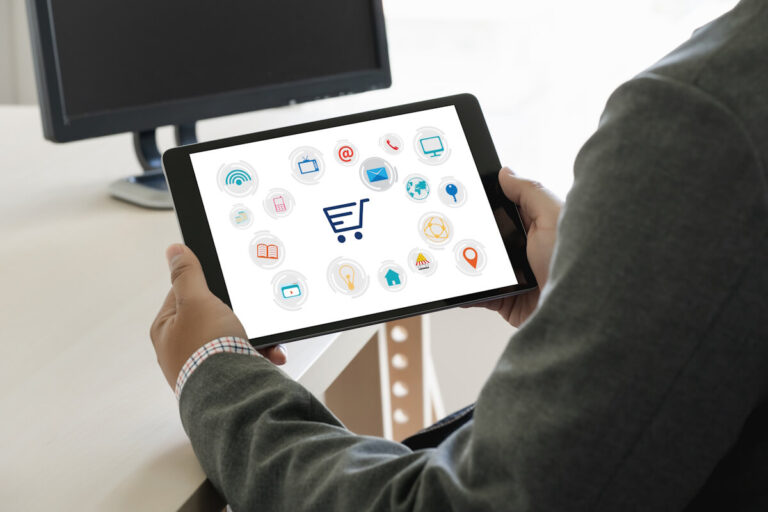Blockchain technology has been disrupting various industries, and the fintech sector is no exception. In recent years, the integration of blockchain technology into iPad apps in the fintech industry has been gaining traction, especially in Silicon Valley. This article will explore the impact of blockchain on fintech iPad apps, with insights from key players in Silicon Valley.
What is Blockchain?
Blockchain is a decentralized, distributed ledger technology that securely records transactions across a network of computers. Each transaction is stored in a block, which is linked to the previous block, creating a chain of blocks – hence the name blockchain. This technology provides transparency, security, and immutability to transactions, making it ideal for fintech applications.
Blockchain technology ensures that transactions are tamper-proof and resistant to fraud, providing enhanced security for fintech iPad apps. The decentralized nature of blockchain contributes to a secure environment where sensitive financial information can be exchanged without the risk of unauthorized access. This level of security is crucial in safeguarding the integrity of financial transactions in the fintech industry.
The transparency offered by blockchain technology allows all parties involved in a transaction to have real-time access to the transaction history. This increased transparency builds trust among users, as they can verify the authenticity of transactions and track the flow of funds. Additionally, the transparency provided by blockchain technology reduces the likelihood of disputes, as all transaction details are readily available for verification.
Blockchain technology streamlines processes in fintech iPad apps by eliminating the need for intermediaries. This increased efficiency reduces the time and costs associated with transactions, benefiting both fintech companies and their users. By automating processes and reducing manual intervention, blockchain technology enhances the speed and accuracy of transactions, leading to a more efficient financial ecosystem.
- Enhanced security
- Increased transparency
- Improved efficiency
The use of blockchain technology in fintech iPad apps can help reduce costs associated with traditional payment systems, such as fees for processing transactions. This cost-saving benefit is attractive to both fintech companies and their customers, as it allows for more cost-effective financial transactions and services.
Silicon Valley’s Role in Blockchain Fintech Innovation
Silicon Valley has been at the forefront of blockchain fintech innovation, with numerous companies and startups developing cutting-edge solutions that leverage blockchain technology. These companies are driving the adoption of blockchain in fintech iPad apps and paving the way for a more secure and efficient financial ecosystem.
Key Players in Silicon Valley
1. Coinbase
As one of the largest cryptocurrency exchanges in the world, Coinbase has been instrumental in promoting the adoption of blockchain technology in fintech applications. The company’s user-friendly interface and robust security measures have made it a popular choice among fintech users. Coinbase’s platform offers a seamless experience for buying, selling, and storing cryptocurrencies, catering to both novice and experienced users in the fintech space.
2. Ripple
Ripple is another key player in Silicon Valley that is revolutionizing cross-border payments using blockchain technology. The company’s XRP cryptocurrency and RippleNet payment network offer fast and low-cost transactions, making it an attractive option for fintech companies looking to expand globally. Ripple’s focus on enhancing the efficiency and affordability of cross-border transactions has positioned it as a leader in blockchain fintech innovation, with a growing user base worldwide.
Future Trends in Blockchain Fintech iPad Apps
1. Decentralized Finance (DeFi)
Decentralized finance, or DeFi, is a rapidly growing trend in the fintech industry that leverages blockchain technology to create decentralized financial instruments and applications. DeFi apps are built on blockchain platforms such as Ethereum and offer services such as lending, borrowing, and trading without the need for traditional financial intermediaries. The rise of DeFi presents new opportunities for financial inclusivity and innovation, allowing users to access a wide range of financial services in a decentralized manner.
2. Tokenization of Assets
The tokenization of assets is another emerging trend in blockchain fintech that involves representing real-world assets, such as real estate or stocks, as digital tokens on a blockchain. This allows for greater liquidity, transparency, and accessibility to a wider range of investors. Tokenized assets provide fractional ownership opportunities, enabling investors to diversify their portfolios and access previously illiquid markets. The tokenization of assets is poised to transform the way assets are bought, sold, and traded in the financial industry.
3. Central Bank Digital Currencies (CBDCs)
Central bank digital currencies, or CBDCs, are digital versions of fiat currencies issued by central banks. Many countries are exploring the use of blockchain technology to issue CBDCs, which could revolutionize the way payments are made and processed in the future. CBDCs offer the potential for faster, more secure, and cost-effective payment systems, with the added benefit of central bank oversight and stability. The development of CBDCs represents a significant shift in the financial landscape, with implications for monetary policy, financial stability, and cross-border transactions.
In conclusion, the impact of blockchain on fintech iPad apps is significant, with benefits such as enhanced security, increased transparency, improved efficiency, and lower costs. Silicon Valley continues to drive innovation in this space, with key players developing cutting-edge solutions that leverage blockchain technology. Future trends in blockchain fintech include DeFi, tokenization of assets, and the issuance of CBDCs, shaping the future of the financial industry. Contact us today to start building your iOS app and be a part of this exciting revolution. The possibilities are endless, and the impact is immeasurable. So let’s take on this challenge together!
FAQs:
1. What is Blockchain?
Blockchain is a decentralized, distributed ledger technology that securely records transactions across a network of computers. Each transaction is stored in a block, which is linked to the previous block, creating a chain of blocks – hence the name blockchain. This technology provides transparency, security, and immutability to transactions, making it ideal for fintech applications.
2. What are the benefits of Blockchain in Fintech iPad Apps?
- Enhanced Security: Blockchain technology ensures transactions are tamper-proof and resistant to fraud.
- Increased Transparency: All parties involved have a real-time view of transaction history, building trust and reducing disputes.
- Improved Efficiency: Blockchain technology streamlines processes and reduces time and cost associated with transactions.
- Lower Costs: Reduces costs associated with traditional payment systems, such as fees for processing transactions.
3. What is Silicon Valley’s role in Blockchain Fintech Innovation?
Silicon Valley has been at the forefront of blockchain fintech innovation, with companies developing cutting-edge solutions leveraging blockchain technology. They are driving the adoption of blockchain in fintech iPad apps, creating a more secure and efficient financial ecosystem.










